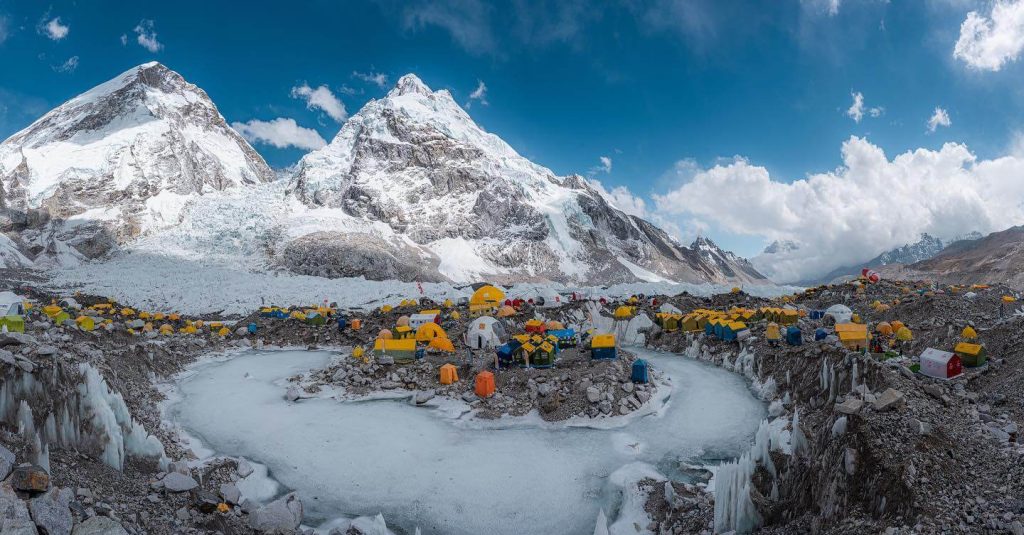June 18, 2023: Mount Sagarmatha, popularly known as Mount Everest, has faced a significant waste management challenge this year. According to recent reports from the Sagarmatha Pollution Control Committee (SPCC), a staggering 75 tons of waste has been generated on the mountain during the spring season. This alarming figure includes a substantial amount of 70 tons of collected garbage, highlighting the pressing need for effective waste management strategies in this pristine environment.
The SPCC has been diligently working to address the waste issue on Mount Everest, particularly during the climbing season that takes place at the Everest Base Camp and higher regions. Their efforts have resulted in the collection of 60,488 kilograms of waste solely from the base camp. Among the collected waste, 21,449 kilograms are classified as burnable, while 7,536 kilograms are categorized as non-burnable waste. Furthermore, climbers descending from higher elevations have brought down an additional 21,574 kilograms of human excreta and 9,196 kilograms of biodegradable waste.
To combat this environmental challenge, the SPCC has implemented regulations requiring each climber to bring back eight kilograms of waste per person from the base camp. Tshering Lhakpa Sherpa, the chairman of SPCC, revealed that some climbers have gone above and beyond this requirement, returning with an impressive 8,954 kilograms of waste from the higher camps. Sherpa also emphasized that the waste management system in place is capable of handling both burnable and non-burnable waste. Waste that cannot be incinerated is carefully airlifted to Kathmandu, the capital city of Nepal, for proper disposal.
Sherpa explained that burnable waste is managed within the vicinity of the base camp, where measures are taken to ensure its safe and controlled disposal. Meanwhile, waste such as human excreta and biodegradable materials, which are brought down from higher elevations, are managed at lower levels near the base camp. These meticulous waste management practices adopted by the SPCC are aimed at minimizing the environmental impact on Mount Everest, a globally renowned natural wonder.
The SPCC’s dedicated efforts to handle and properly manage waste are commendable, as they strive to protect the fragile ecosystem of Mount Everest. By tackling the waste issue head-on, they play a vital role in preserving the pristine beauty and ecological integrity of this iconic mountain. However, this news also serves as a reminder of the urgent need for sustainable practices and increased awareness among climbers and visitors to minimize waste generation and maintain the sanctity of this majestic natural treasure.













